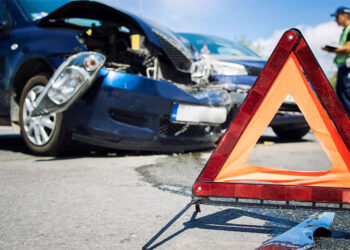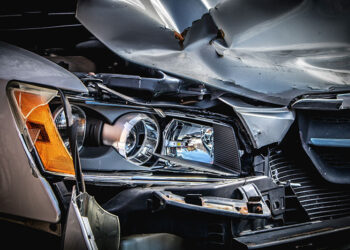Car accidents are unpredictable, and when something unexpected occurs, it’s all too common to become dazed in the moment. Whether it’s a minor accident or a major crash, having an idea of what to do right away can change everything. Calming down and proceeding with the appropriate steps can help keep you safe, secure your rights, and simplify dealing with law enforcers and insurance companies.
This is what to do immediately if you are involved in an accident
1. Notify Your Attorney
If a serious personal injury, major vehicle damage, or disagreement about who was at fault occurs in the accident, seeking an attorney’s assistance can prove valuable.
After a car accident, an attorney will assist you in determining your legal entitlements, negotiating with insurance adjusters, and ensuring a reasonable compensation payout for medical expenses, lost wages, and other damages.
2. Check For Injuries And Ensure Safety
Your first action after an accident should be to see if you and your passengers are injured. If anyone is injured, call 911 so medical aid can arrive immediately. Don’t assume minor injuries are unimportant; get them evaluated by medical staff because conditions like concussions or internal injuries may not have symptoms yet.
After checking your condition, see if anyone else who was involved in the accident, including drivers, passengers, and pedestrians, are all right. If a person is unconscious or shows signs of severe injury, do not move them if there isn’t an immediate threat, such as a fire or escaping gas.
3. Call The Police and Report The Accident
Even if the accident appears to be minor, reporting it to the police is an important step. A police report serves as official documentation of what occurred and may prove helpful in insurance settlements and legal proceedings. Be accurate when reporting to officers, but do not admit fault or speculate about how the accident occurred.
4. Document The Scene With Photos And Notes
One of the most effective methods of evidence collection is taking pictures of the accident site. If possible, capture vehicle damage, license plates, road conditions, road signs, and visible wounds.
Take multiple views, if possible, so as to get a full picture of the accident. Apart from photographs, write down details of what occurred, including time, date, weather, and anything else that may be relevant. If you remember anything significant before the crash, take down notes about it while it’s still in your memory.
5. Notify Your Insurance Company
Call your insurance company as early as possible to report the accident. Most companies have a certain deadline when the claims need to be filed, so reporting as soon as possible can prevent delays. Give them all of the details, including the police report number and whatever evidence you gathered.
Your insurance company will explain what to do next, including having your vehicle repaired or setting up a rental vehicle if necessary. Always report what occurred accurately, but don’t admit fault until everything becomes more apparent.
6. Seek Medical Attention Even If You Feel Fine
Even if you don’t feel immediate injuries or pain, seeing a doctor following an accident is a wise precaution. Some types of injuries, like whiplash and internal trauma, can take a few hours or even days to become apparent. A medical exam can reveal latent injuries and documentation if a future claim needs to be filed.
Immediately seek medical attention if you are experiencing pain, dizziness, or other symptoms in the days after the accident. Maintaining records of your medical visits and treatment is essential if you must seek compensation for your injuries.
Take Away
Car accidents are stressful, but maintaining calm and adhering to proper procedures makes them more manageable. Being prepared, collecting information, and informing the proper authorities are measures that, when taken, will save you and ease your recovery process. Preparedness is important—having knowledge beforehand makes all the difference when unexpected accidents occur.






























